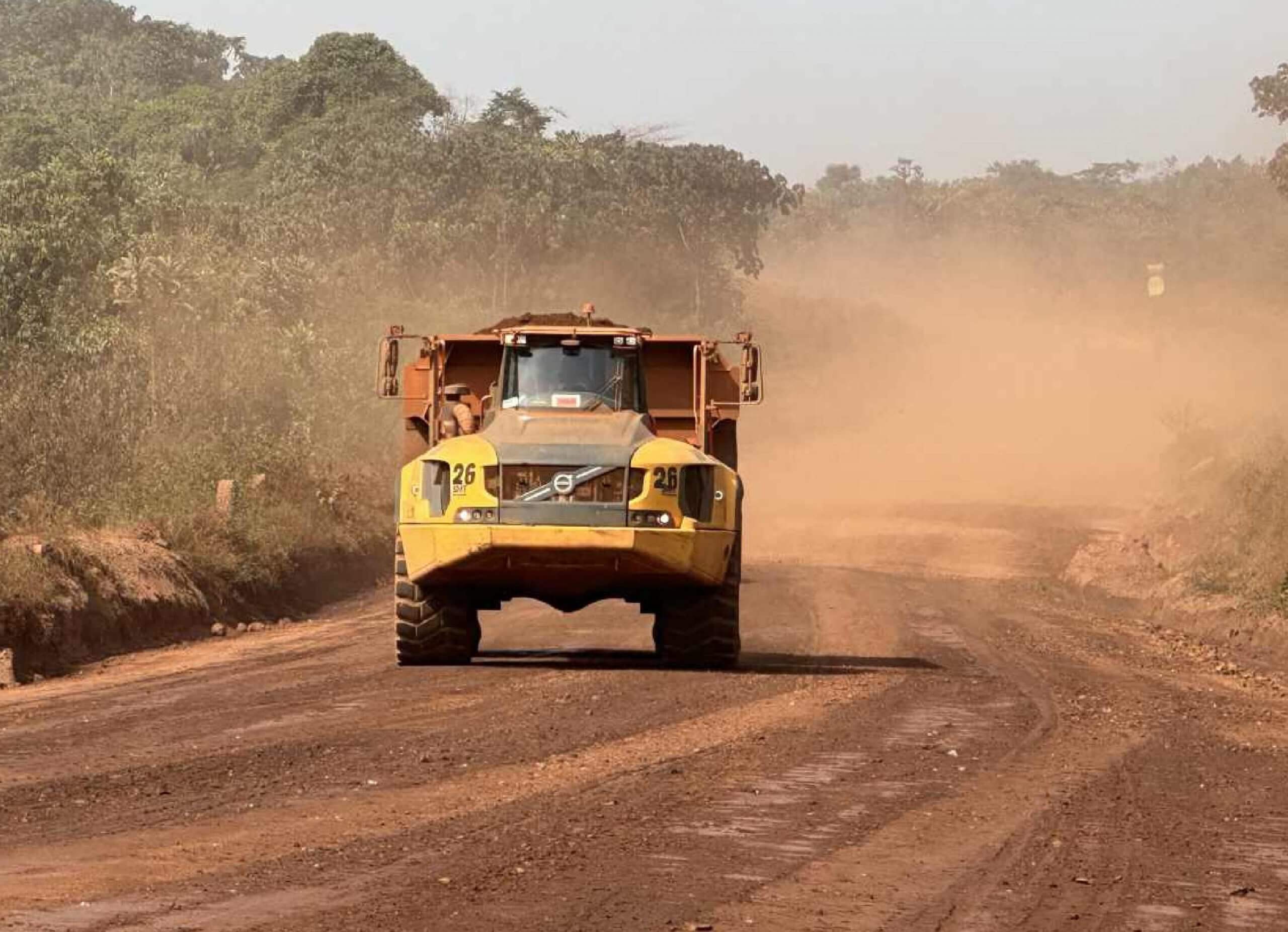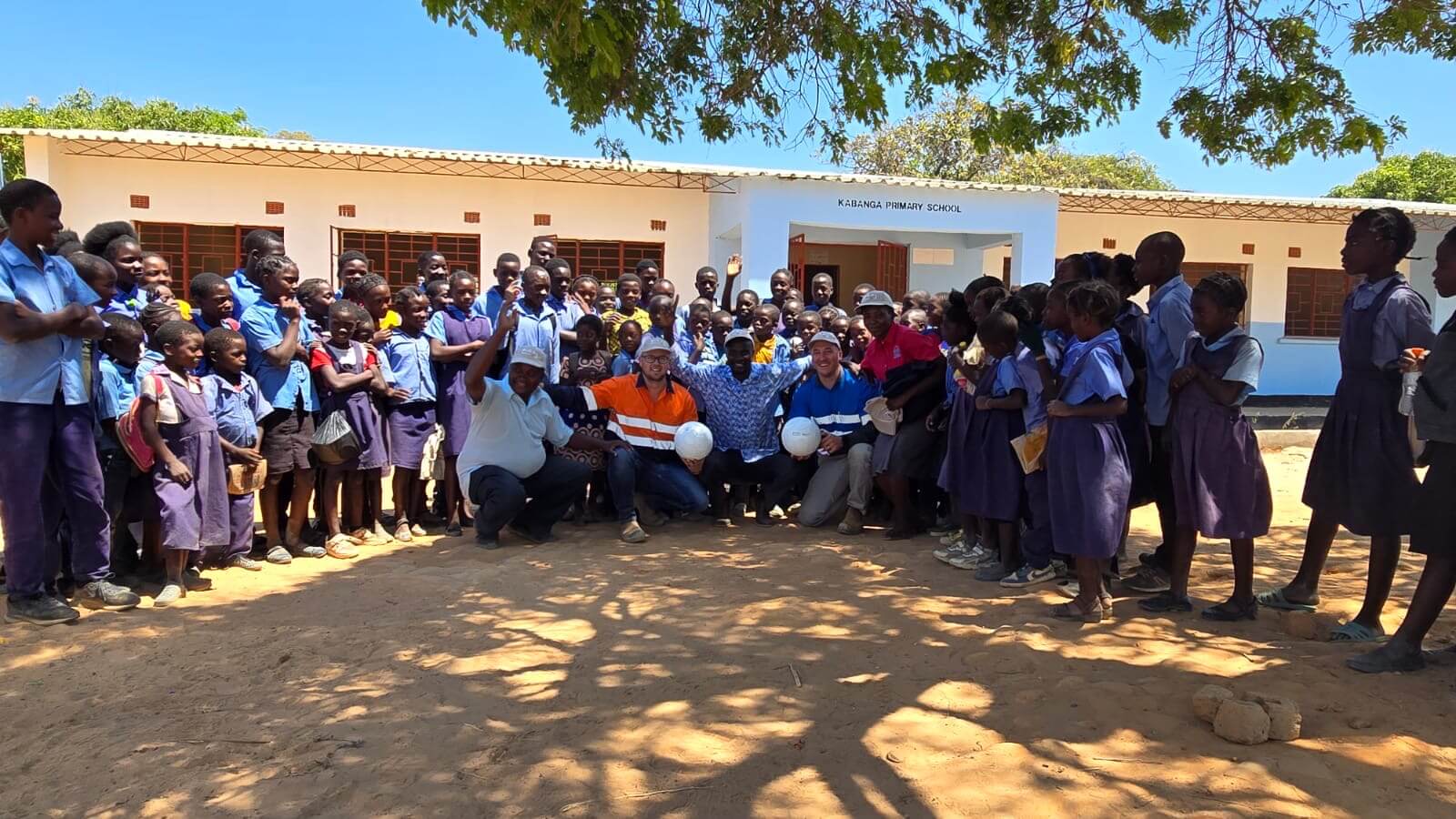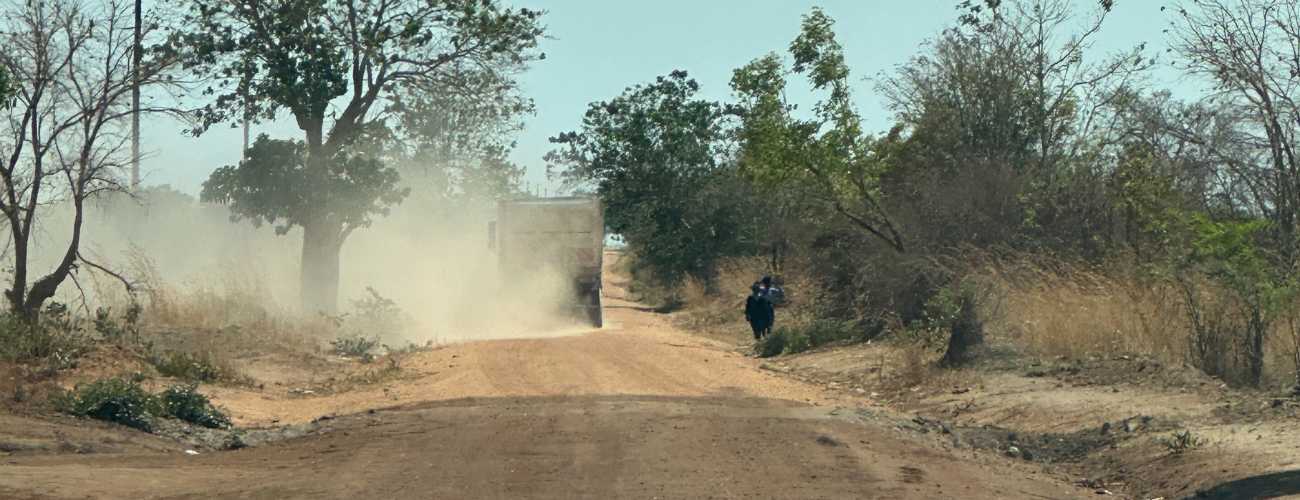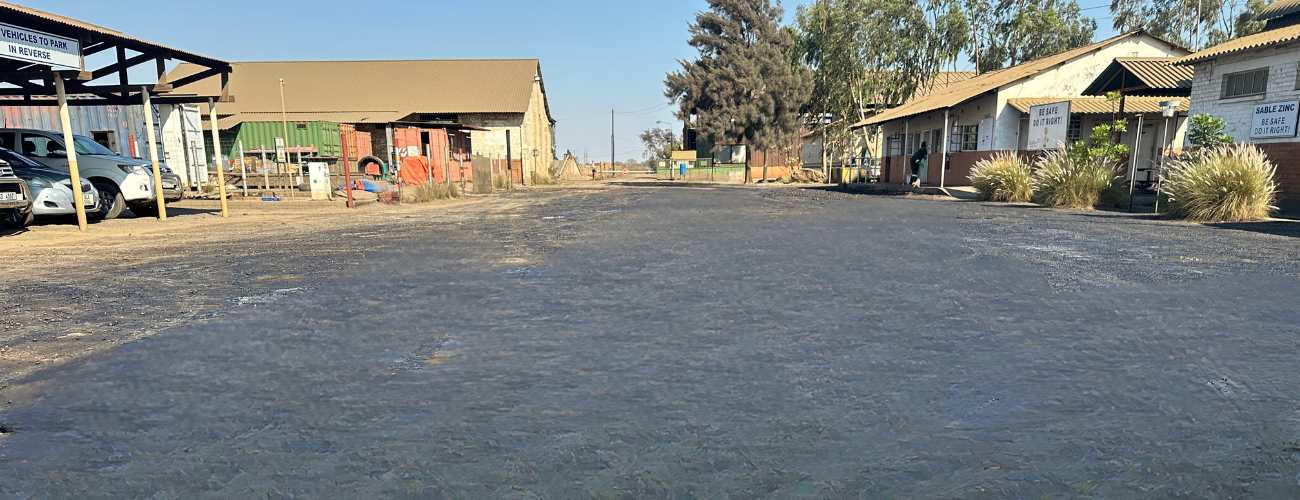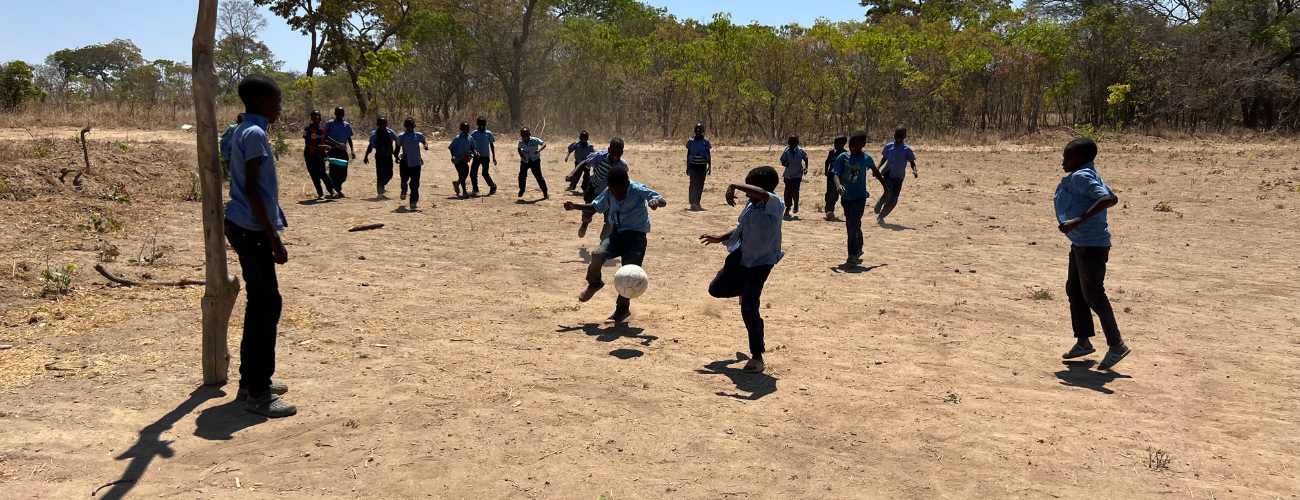ArcelorMittal cuts water use on haul roads by 75% with biological dust control
Content

Client:
ArcelorMittal Iron Ore Mine
Location:
Liberia
Challenge:
Water scarcity & dust control to protect nearby communities
Use-Case:
Dust Control on haul roads
After reviewing all their options, the mine trialled a biological dust control method. The results were striking: water usage fell by 75%, dust fallout was significantly reduced, and truck cycle time improved.
Problem: Dust control with traditional methods
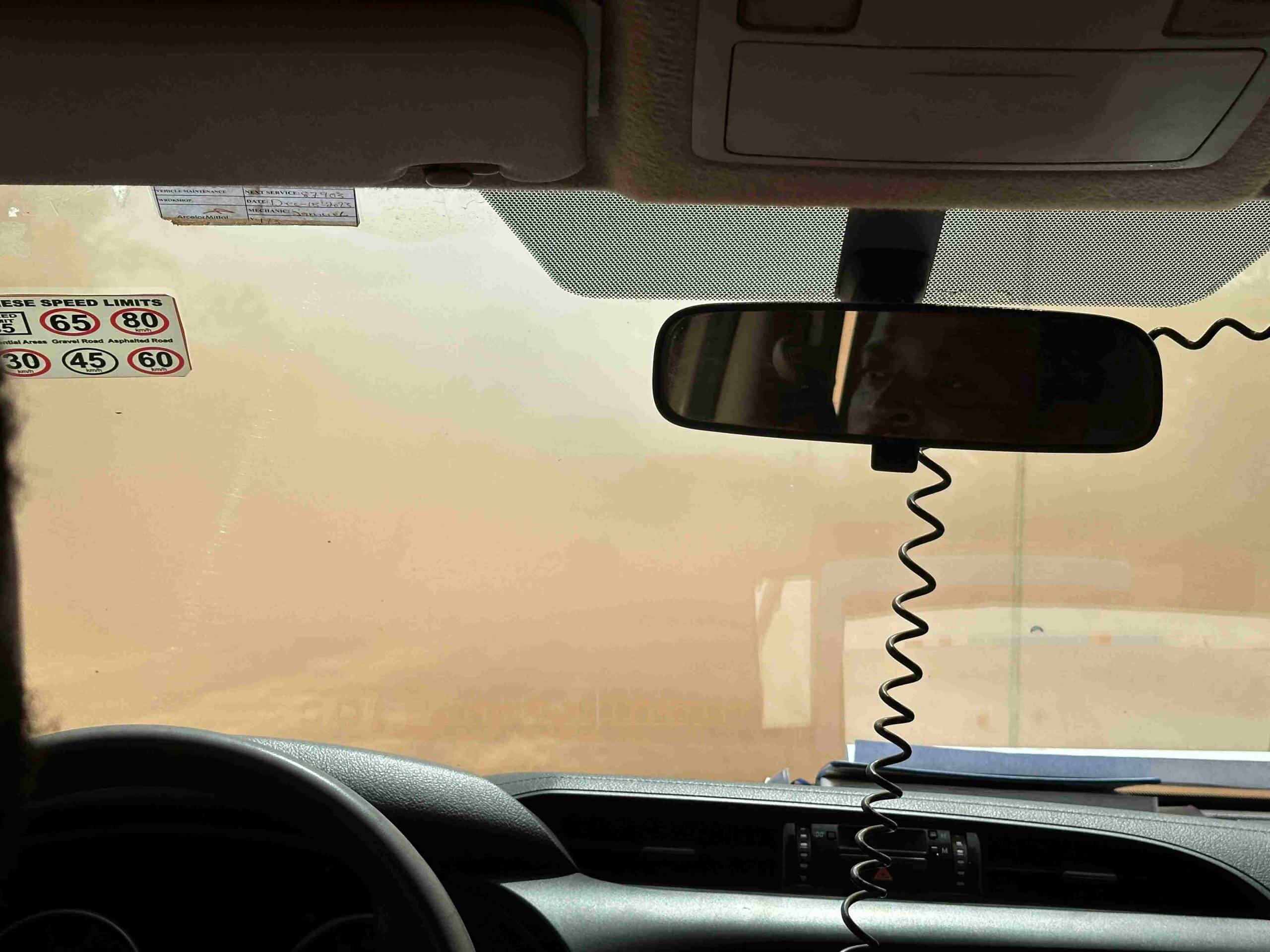
ArcelorMittal’s Liberian site is a high-production iron ore operation with dump trucks and light vehicles cycling through every minute on 12m-wide haul roads.
Controlling dust is essential to protect nearby communities and maintain safe driving conditions. However, the traditional approach relied entirely on water, applied several times a day with a fleet of water trucks.
The daily water requirements for dust suppression were high – sometimes reaching up to 300,000 litres per day – and it still wasn’t enough to keep dust levels under control.
“Like so many mining operations that use only water to control dust, they were stuck in a cycle where they had to keep applying water, but that water would destabilise the road, forcing them to rework the surface more often,” explains JC Le Roux, Head of Business Development at Bind-X.
In addition to the strain on water resources, the repeated watering cycles caused road deterioration, increasing maintenance costs and reducing vehicle cycle times.
“The type of iron ore dust there is extremely fine and when it plumes you can’t see five metres in front of you,” says Le Roux. “Dust fallout significantly reduced visibility during material hauling, occasionally causing delays and lowering cycle times.”
A biological dust control approach

Seeking a more sustainable and efficient way, the Operations Manager tested a biological dust control method developed by Bind-X. The product called Terrabind, uses biological technology to bind the upper wearing course layer with bio-cementation, forming a stable surface that reduces dust and makes the road more durable.
Unlike bitumen-based solutions, which are costly and pose environmental risks, biological dust control is a process that already occurs in nature, and is safe for waterways and ecosystems. The solid, cement-like layer that it forms reduces the need for water as dust particles in the soil are bound tight.
The mining services team were intrigued by the concept of using clean technology to control dust so they decided to trial it.
Dust control trial implementation
The team conducted a three-month trial on two sections of road: a primary haul road with heavy traffic and a secondary road with less frequent use. They applied the product in two ways: as an additive to the road surface during construction and as a surface treatment for existing roads.
Could a biological dust control approach deliver the same results as traditional methods?
“Once the trial began, the roads started holding up better almost immediately,” said Le Roux. “The product formed a hard, stable layer that didn’t require constant watering or reapplication.”
Results: 75% less water usage
The trial delivered dramatic improvements. Water usage dropped by 75%, a drop in daily consumption from 300,000 litres to just 75,000 litres. The dust-free roads improved air quality for workers and nearby communities.
In addition to water savings, the operation experienced other cascading benefits. The roads required far less maintenance, freeing up equipment and labour for other tasks. Truck cycle times improved as drivers encountered less dust plumes blocking vision, and smoother, more stable surfaces.

Mining service manager
ArcelorMittal iron ore mine, Liberia
“Reducing water trips from three or four times a day to just once every few days made a huge difference. We’re seeing better road durability, less equipment wear, and fewer operational interruptions.”
A new standard for sustainable mining
After the trial report was signed off, ArcelorMittal decided to fully adopt the biological dust control solution across its Liberian site. The move has not only helped conserve water but also improved the mine’s overall environmental footprint and they are now preparing to roll it out at other locations.
“This approach aligns perfectly with our sustainability goals,” said the Mining Services Manager. “It’s allowed us to cut water use dramatically while improving operational efficiency and reducing our impact on the community.”
The transition has also simplified logistics. Unlike traditional chemical suppressants, the biological product is easy to store, transport, and apply, further reducing costs and environmental risks.
“Our experience shows that you don’t have to choose between sustainability and performance,” said Le Roux. “With the right approach, you can achieve both.”
By embracing biological dust control, ArcelorMittal has set a new benchmark for responsible mining practices, demonstrating how modern technology can drive operational excellence while protecting vital resources.
